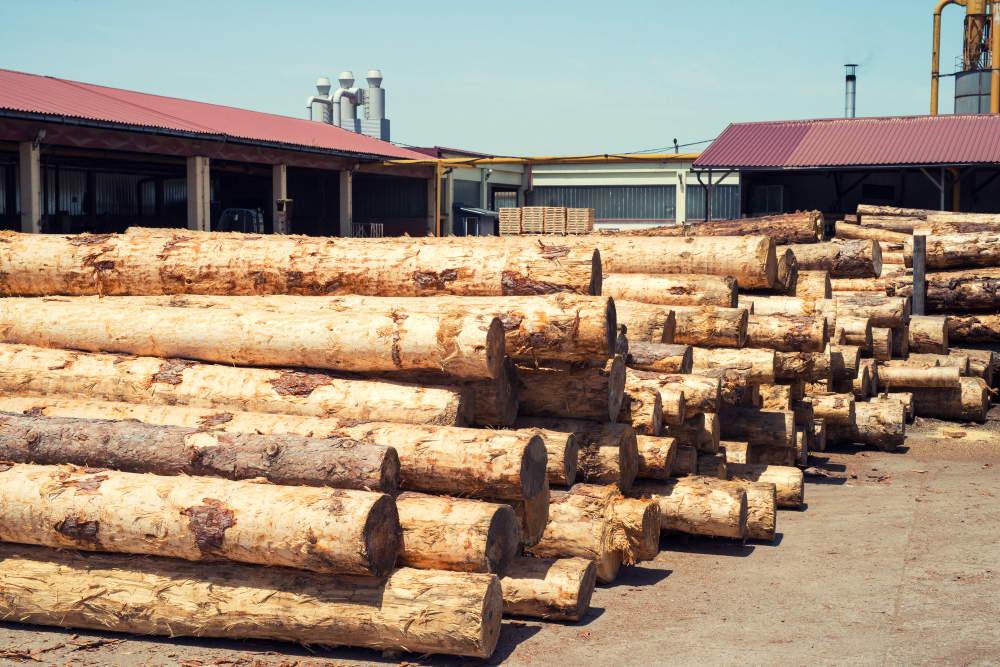Last updated on
In today’s world, sustainability is far from a mere trend – it’s a necessity. As consumers, our choices can significantly impact the environment and the world’s ecosystems. This is particularly true when it comes to decking and furniture choices.
Sustainable wood sourcing is not a trivial matter but rather a profound responsibility that carries far-reaching implications. Using responsibly sourced wood is an effective way to reduce environmental harm, support responsible forestry practices, and promote the health of global forests.
This piece aims to shed light on why sustainable wood sourcing matters and how it can make a tangible difference in our environment and future.
What's Inside
The Environmental Impact of Non-sustainable Wood Sourcing

When wood is sourced in a non-sustainable manner, it contributes to deforestation, a major environmental issue that exacerbates climate change. Deforestation not only leads to a loss of trees that absorb greenhouse gases but also results in the release of stored carbon into the atmosphere.
It disrupts ecosystems, endangering the survival of countless species, and negatively impacts local communities that rely on forests for their livelihood. By choosing sustainably sourced wood, consumers can play a part in preserving forests and mitigating the effects of climate change.
Some certifications, such as the Forest Stewardship Council (FSC), ensure that wood comes from responsibly managed forests that meet rigorous environmental, social, and economic standards.
Promoting Responsible Forestry Practices

Sustainable wood sourcing also supports responsible forestry practices. This includes replanting trees and minimizing the impact on surrounding ecosystems during harvesting.
By choosing products made with sustainably sourced wood, consumers can encourage companies to adopt responsible forestry practices and contribute to the conservation of global forests. This, in turn, helps protect the biodiversity of these forests and provides economic opportunities for communities that depend on them.
Namely, when looking for high quality and sustainable timber, consider companies that source their own wood from responsibly managed forests and have a strong commitment to sustainability. These companies are leading the way in setting an example for others to follow and making a positive impact on the environment.
The Long-term Benefits of Sustainable Wood Sourcing

Aside from immediate environmental benefits, sustainable wood sourcing also has long-term advantages. As more consumers demand sustainably sourced wood, companies will be incentivized to shift towards responsible sourcing practices.
This can lead to a decrease in illegal logging and the promotion of sustainable forestry practices around the world. It also creates a market for eco-friendly products, encouraging companies to innovate and develop more environmentally friendly materials.
Even more so, sustainable wood sourcing can help combat climate change by reducing deforestation and preserving the vital role that forests play in mitigating carbon emissions. It also promotes biodiversity and supports local communities, contributing to a healthier and more sustainable world for future generations.
Making a Difference

As consumers, we hold immense power when it comes to influencing corporate practices and protecting the environment. By choosing sustainably sourced wood for our decking and furniture, we can play a role in promoting responsible forestry practices, preserving global forests, and mitigating the effects of climate change.
It’s a small but significant action that can make a tangible difference in creating a more sustainable future. So let’s make conscious choices and choose to support companies that prioritize sustainability, for the sake of our environment and future generations.
A lot of work is still needed to ensure the sustainability of our planet, and it starts with the choices we make as consumers. So, when it comes to your next decking or furniture purchase, consider the impact it will have on the environment and choose sustainably sourced wood.
Identifying Sustainably Sourced Wood
When shopping for wood products, you may ask, “How can I identify sustainably sourced wood?” The simplest answer is to look for certification labels on products.
Forest certification systems like the Forest Stewardship Council (FSC) or the Programme for the Endorsement of Forest Certification (PEFC) indicate that the wood is sourced from responsibly managed forests. These labels assure consumers that the product they’re buying comes from forests that have been managed with care for both environmental and social values.
You can also look for companies that openly discuss their wood sourcing practices, indicating a commitment to transparency and sustainability. Remember, your purchasing decisions can help promote the sustainability of our planet, and your actions as a consumer can make a significant impact.
So let’s choose sustainably sourced wood and make a positive difference for our environment.
The Takeaway
The choices we make as consumers have profound implications on our environment. When we opt for decking and furniture made from sustainably sourced wood, we are not only purchasing a product but also casting a vote for a more sustainable and eco-friendly world.
Our demand for sustainability can inspire a domino effect, encouraging more companies to adopt responsible forestry practices and innovate sustainable alternatives. By recognizing the value of sustainable wood sourcing and making conscious, eco-friendly decisions, we can collectively pave the way towards a healthier planet and a brighter future for generations to come.
The power lies in our hands – every choice matters. So let’s choose sustainability and do our part in protecting the environment. So, let’s continue to educate ourselves and make informed decisions that align with our values of sustainability and responsibility towards the planet.




